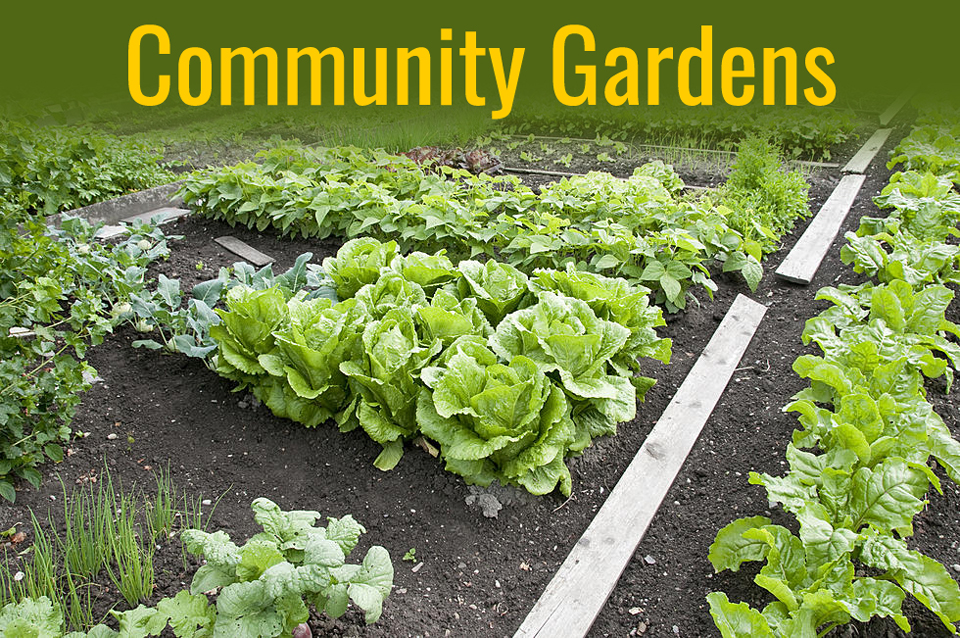 |
 |
|
April 27, 2022 Grow or buy local – serve your neighbourhood and the planet A core element of a strategy of sustainable development is the reform of agricultural policies and processes. Food production and agriculture is the world's single largest source of employment [....] malnourishment and food insecurity suffocate all attempts at development and progress [...] The farmer must be accorded his or her rightful place in the process of development and civilization building: as villages are reconstructed, the cities will follow. — (Bahá’í International Community, 2008) 
In a recent talk, Bahá'í ecologist Arthur Dahl listed resource depletion, loss of biodiversity, climate change and mass population displacement as interrelated crises that must be addressed both at an individual level as well as through global governance. One of his starkest warnings was the statement from the UN's Food and Agriculture Organization that if we continue our current methods of agricultural production, we have only 60 harvests before the system collapses. Dahl suggests that the pandemic offers us an opportunity for fundamental transformation. As individuals in Western society, we must limit our consumption and develop smaller, simpler, and more local economic activities. He says we need to develop a more distributive approach to food production, with food grown sustainably and harvested closer to where it is consumed. One of the easiest ways to do both is to make food consumption more local – either by buying more food locally, growing your own food, or a combination of both. In Ottawa there are several ways we can do this. Consumers can shop at farmers’ markets, buy food from a Community-Supported Agriculture (CSA) farm, join a community garden to grow food or donate a row to the neighbourhood. Garden boxes in the backyard or on an apartment balcony also works. Organic eggs or flower bouquets can be added each week. There are also at least 25 CSA farms in the Ottawa region that offer a share of their harvest in weekly baskets of seasonal fruits and vegetables in the spring and summer. Organic eggs or flower bouquets can be added each week. Several CSA farms even offer winter baskets that contain root vegetables and some hydroponic greens.  Ottawa boasts more than 50 community gardens. Bahá’í's in Overbrook, the Glebe and Centertown as well as surrounding areas are active in their neighbourhood community gardens growing their own vegetables, which fosters new and positive learning experiences. The advantages of having a community garden include learning to grow food, offering community service by providing food for homeless shelters or food banks and improving mental health by being outside and tending to plants as they grow. Most community gardens require that members donate 15 hours for the benefit of the garden plots. Virtually all community gardens have veteran gardeners who can advise on how to plant vegetables and deal with weeds and pests. Square foot gardening is also a good approach to increasing output for a small plot. The Ottawa Food Bank has its own Community Harvest farm in Stittsville where a range of fruits and vegetables are grown. Open to both visitors and volunteers, this six-acre farm grows as many as 16 different crops and has a roster of over 700 volunteers (you must be 14 and older to volunteer). Growing food in the backyard can also reduce dependence on grocery store produce during the summer. In Ottawa's climate and soil, carrots, beans, peas, lettuce, broccoli, kale, beets, onions, bell peppers, many types of squash, zucchini, and potatoes can be grown. Online help can be found at CGN-RJC (justfood.ca). Food can also be produced on your apartment balcony. Crops that grow on a sunny balcony need more than six hours of direct sun a day. In a bucket with 6 to 9 inches of soil you can grow plants such as beans, lettuce, spring onions, carrots, radishes, and spinach. Gardeners need 12 inches of soil to grow plants such as tomatoes, squash, peppers, long carrots, and the bigger the container, the better yield. Be sure to place holes at the bottom of the plant container to let water out. Even on a shadier balcony beets, carrots, chives, onions and garlic can be grown. A mulch of straw, compost, or newspaper will be required to cover the soil and keep it moist, especially in windy conditions, which may dry out the plant. For more information, or to attend the Ottawa Cluster Environment Group meetings, please contact ottawaclusterenvironment@gmail.com. |
|
|